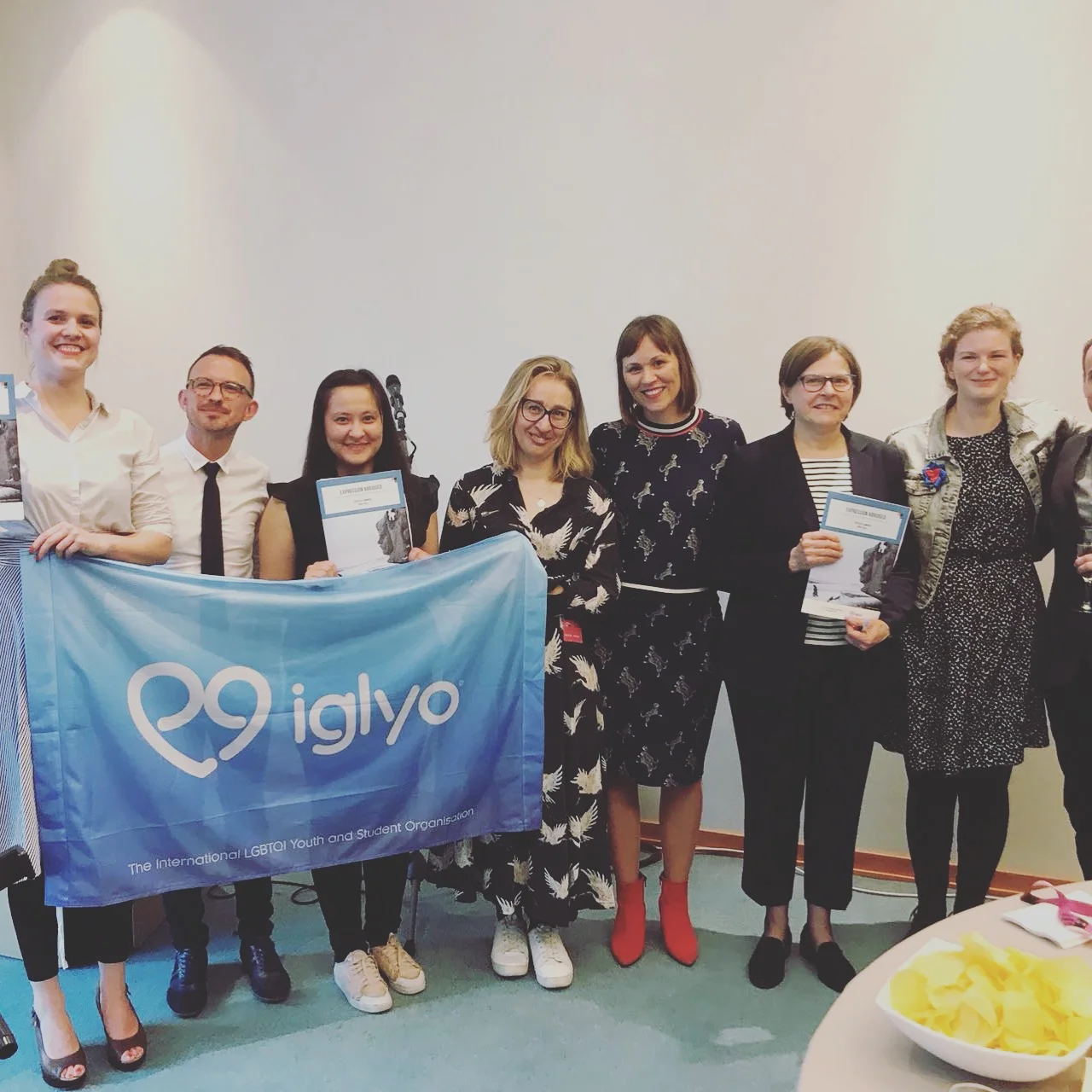Den 24:e april släpptes en viktig rapport som jag hade äran att stå värd för. Rapporten heter "Expression abridged: Legal analysis ob Anti-LGBT Propaganda laws" och är ett samarbete mellan IGLYO, Thomson Reuters Foundation och TrustLaw.
Rapporten är en analys av hur de s.k. "anti-propaganda lagarna" som införts i många länder i Östeuropa, Centralasien och Ryssland påverkat situationen för främst unga hbtqi-personer. Lagarna kriminaliserar allt som kan tolkas som att uppmana till en queer livsstil, eller information om transsexualitet, homosexualitet osv.
Här nedan finns mitt tal återgivet från lanseringen av rapporten där jag tar upp den tydliga politiseringen och den ryska strategin för att underminera s.k. "västerländska värderingar".
Dear all!
Thank you for coming here tonight.
I especially want to thank IGLYO for taking the initiative to produce this important report with the support of TrustLaw and the Thomson Reuters Foundation.
We are here tonight to celebrate diversity and human rights for all, especially queer rights! Gay rights are human rights, and human rights are gay rights.
LGBTQ rights must be part of a universal package of human rights, which transcend international borders. It’s the only way forward.
We are here tonight to learn more about the alarming development in central and eastern Europe – countries within the sphere of the former Soviet union and today’s Russia, and to show our support to the brave activists who are trying to work in order to change their societies into more modern and inclusive ones.
The attack on the LGBTQ communities in post Soviet states is the foundation of a strategy. These attacks are often labelled the ”so-called western perverted values” where policy adress queer rights as ”non -russian, non-georgian, non-lithuanian” just to mention a few examples.
This new symbolic universe that was built by Putin and others is one that is built around the heterosexual family, nationalism and the rejection of the ”other”. At the heart of this lies the question of whether societies should integrate or ostracize their LGBTQ citizens.
Let’s listen to what former president of Georgia, Mikahil Saakashvili, said:
“OK, Europe is promising you much more, it’s a better market, they might give you subsidies, they might give you lots of new opportunities and openings. But what you should know is Europe is all about gay rights. If you go to Europe, your family values will be undermined, your traditions will be destroyed. So we as Orthodox unity, we should stick together.”
The experience of being queer in many Eastern European countries today differ between miserable and brutish.
It is illegal, through the legislation on gay “propaganda,” to speak openly of homosexuality in the street or to petition for LGBTQ rights. Gay people are hunted, beaten, and raped—and governments actually applaud this.
By putting the government’s stamp of approval on rampant Russian homophobia, Putin effectively has declared open season for hunting gay/queer people.
In Ukraine, Putin used fear of gay marriage as an instrument to keep Ukraine outside the EU sphere of influence. He brandished this new weapon in the form of billboards throughout Ukraine, their message blunt and ominous for socially conservative Ukrainians: “Association with the EU means same-sex marriage.”
The result is disturbing. “LGBTQ rights” are increasingly associated with concepts of nationalism and state sovereignty. Popular fear against Western interference has resulted in an ideology hostile to LGBTQ rights- homophobia, disguised as nationalism.
And what has the EU:s response been? A shameful silence based on our dependency on Russian gas and oil.
So to conclude: Putin has managed to define LGBTQ rights as a Western construct - embedding the rights discourse into discussions of nationalism and state sovereignty. If the West really does care about the status of LGBTQ individuals, we must adjust our strategy to destroy this dangerous linkage. The lives of millions individuals throughout Eurasia and the rest of the world depend on it.
Thank you for listening and please support IGLYO and the brave work that they’re doing.
